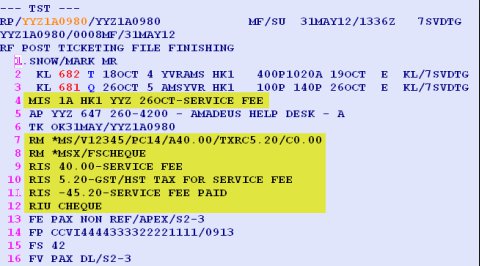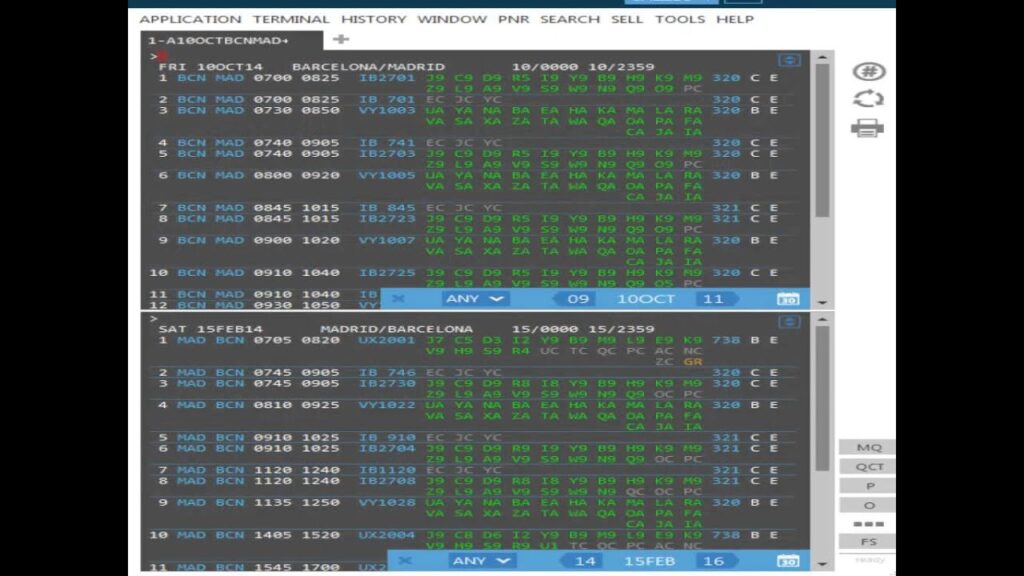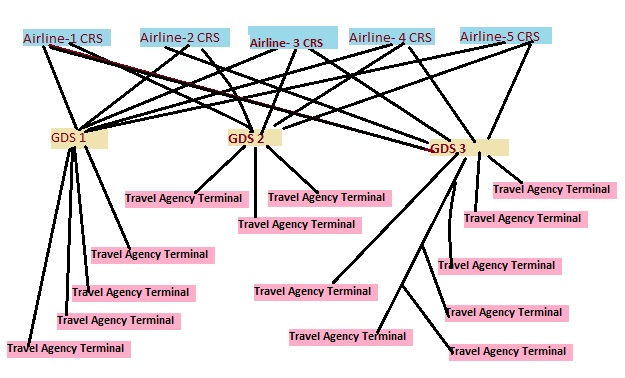Introduction of Global Distribution System (GDS)
A Global Distribution System (GDS) is a computerized network system that facilitates transactions between various players in the travel industry, including airlines, hotels, car rental companies, and travel agencies. It serves as a centralized platform for accessing real-time inventory and making bookings.
GDS platforms rely on the inventory provided by service providers, such as the number of available hotel rooms, flight seats, or rental cars. Travel agencies have traditionally relied on GDS systems to access services, products, and rates from various providers, enabling them to offer comprehensive travel-related services to their customers. GDS systems consolidate and link services, rates, and bookings across the airline, hotel, and car rental sectors.
It’s important to note that a GDS differs from a computer reservation system, which is used by the service providers themselves. The primary users of GDS platforms are travel agents, both online and office-based, who make reservations on various reservation systems managed by the service providers. Unlike a GDS, which does not hold inventory, the inventory is stored in the vendor’s reservation system. GDS platforms establish a real-time connection to the vendor’s database. For example, when a travel agency requests a reservation for a specific airline service, the GDS system routes the request to the corresponding airline’s computer reservations system.
Computer reservation systems (CRS)|Global Distribution System (GDS)
Computer reservation systems (CRS), also known as central reservation systems, are software systems that enable travel industry service providers, such as hotels, airlines, car rental companies, and cruise lines, to manage and distribute their inventory and reservations. CRS systems are primarily used by the service providers themselves rather than travel agents.
Key Features of Computer Reservation Systems: Global Distribution System (GDS)
- Inventory Management:
CRS systems allow service providers to manage their inventory of available rooms, seats, cars, or cabins. They provide a centralized database where providers can update and maintain accurate information about their offerings, including pricing, availability, and restrictions. - Reservation Processing:
CRS systems handle the process of accepting and managing reservations. They enable service providers to receive booking requests, check availability, confirm reservations, and generate booking confirmations or electronic tickets. - Distribution Channels:
CRS systems provide various distribution channels through which service providers can distribute their inventory. This includes direct bookings through their own websites, as well as connectivity to global distribution systems (GDS), online travel agencies (OTAs), travel management companies (TMCs), and other distribution partners. - Connectivity to GDS:
Many CRS systems have integrations with GDS platforms, allowing service providers to make their inventory available to travel agents via the GDS network. This enables travel agents to access real-time availability, pricing, and booking options directly from the service providers’ CRS systems. - Reporting and Analytics:
CRS systems offer reporting and analytics capabilities that allow service providers to track and analyze their booking data. They provide insights into booking patterns, revenue performance, occupancy rates, and other key metrics, helping providers make informed business decisions. - Integration with Other Systems:
CRS systems often integrate with other systems used by service providers, such as property management systems (PMS) for hotels or revenue management systems. This integration ensures seamless data flow and synchronization across different operational areas.
It’s important to note that while both CRS and GDS systems are used in the travel industry, they serve different purposes. CRS systems are primarily used by the service providers themselves to manage their inventory and reservations, while GDS systems are utilized by travel agents to access and book travel services from multiple providers.
examples of global distribution systems (GDS) in the travel industry?
Amadeus is one of the leading Global Distribution Systems (GDS) providers in the travel industry. It offers a comprehensive suite of technology solutions for airlines, hotels, car rental companies, cruise lines, and travel agencies. Amadeus GDS provides a wide range of services and functionalities to facilitate travel bookings and distribution. Here are some key features and capabilities of the Amadeus GDS:
- Global Distribution Network: Amadeus connects travel agents to a vast network of suppliers worldwide. It provides access to a wide range of travel content, including flights, hotels, car rentals, tours, and other travel services.
- Flight Reservations: Amadeus GDS allows travel agents to search and book flights from multiple airlines. It provides real-time availability, fares, and flight schedules. Agents can compare options, select seats, and issue tickets directly through the system.
- Hotel Reservations: The Amadeus GDS enables travel agents to search for and book hotel accommodations. It offers detailed information about hotel properties, including room types, rates, amenities, and availability. Agents can make reservations and generate confirmation vouchers within the platform.
- Car Rental Reservations: Amadeus offers car rental booking capabilities, allowing agents to search and reserve rental vehicles from various car rental companies. It provides access to inventory, rates, and rental policies, making it easier to manage car bookings for clients.
- Ancillary Services: Amadeus integrates ancillary services into the booking process. Agents can add extras such as travel insurance, airport transfers, and other supplementary services to enhance their clients’ travel experiences.
- Fare Management: The Amadeus GDS provides comprehensive fare management tools. It allows agents to search for the best available fares, compare prices across multiple airlines, and apply fare rules and restrictions.
- Reporting and Accounting: Amadeus offers reporting and accounting functionalities that help travel agents track bookings, commissions, and financial transactions. It provides insights into sales performance, revenue, and other key metrics.
- Integration and Connectivity: Amadeus GDS integrates with various third-party systems and platforms, enabling seamless data exchange and connectivity. It connects with airline reservation systems, hotel property management systems (PMS), and other travel technology solutions.
Amadeus GDS is known for its robust technology infrastructure, extensive travel content, and user-friendly interfaces. It plays a significant role in facilitating travel reservations and distribution for travel agencies, helping them efficiently serve their customers and access a wide range of travel options.

Galileo is a Global Distribution System (GDS) that is widely used in the travel industry. It is operated by Travelport, a leading travel technology company. Galileo provides comprehensive distribution and reservation services for airlines, hotels, car rental companies, cruise lines, and other travel service providers. Here are some key features and functionalities of the Galileo GDS:

- Global Distribution Network: Galileo connects travel agents to a vast network of travel suppliers worldwide. It offers access to a wide range of travel content, including flights, hotels, car rentals, tours, and more.
- Flight Reservations: Galileo enables travel agents to search and book flights from multiple airlines. It provides real-time availability, fares, and flight schedules. Agents can compare options, select seats, and issue tickets directly through the system.
- Hotel Reservations: The Galileo GDS allows travel agents to search for and book hotel accommodations. It provides detailed information about hotel properties, including room types, rates, amenities, and availability. Agents can make reservations and generate confirmation vouchers within the platform.
- Car Rental Reservations: Galileo offers car rental booking capabilities, allowing agents to search and reserve rental vehicles from various car rental companies. It provides access to inventory, rates, and rental policies, making it easier to manage car bookings for clients.
- Ancillary Services: Galileo integrates ancillary services into the booking process. Agents can add extras like travel insurance, airport transfers, and other supplementary services to enhance their clients’ travel experiences.
- Fare Management: The Galileo GDS provides comprehensive fare management tools. It allows agents to search for the best available fares, compare prices across multiple airlines, and apply fare rules and restrictions.
- Reporting and Accounting: Galileo offers reporting and accounting functionalities that help travel agents track bookings, commissions, and financial transactions. It provides insights into sales performance, revenue, and other key metrics.
- Integration and Connectivity: Galileo integrates with various third-party systems and platforms, enabling seamless data exchange and connectivity. It connects with airline reservation systems, hotel property management systems (PMS), and other travel technology solutions.
Galileo is known for its user-friendly interface, robust functionality, and extensive global reach. It plays a significant role in facilitating travel reservations and distribution for travel agencies, helping them efficiently serve their customers and access a wide range of travel options.

